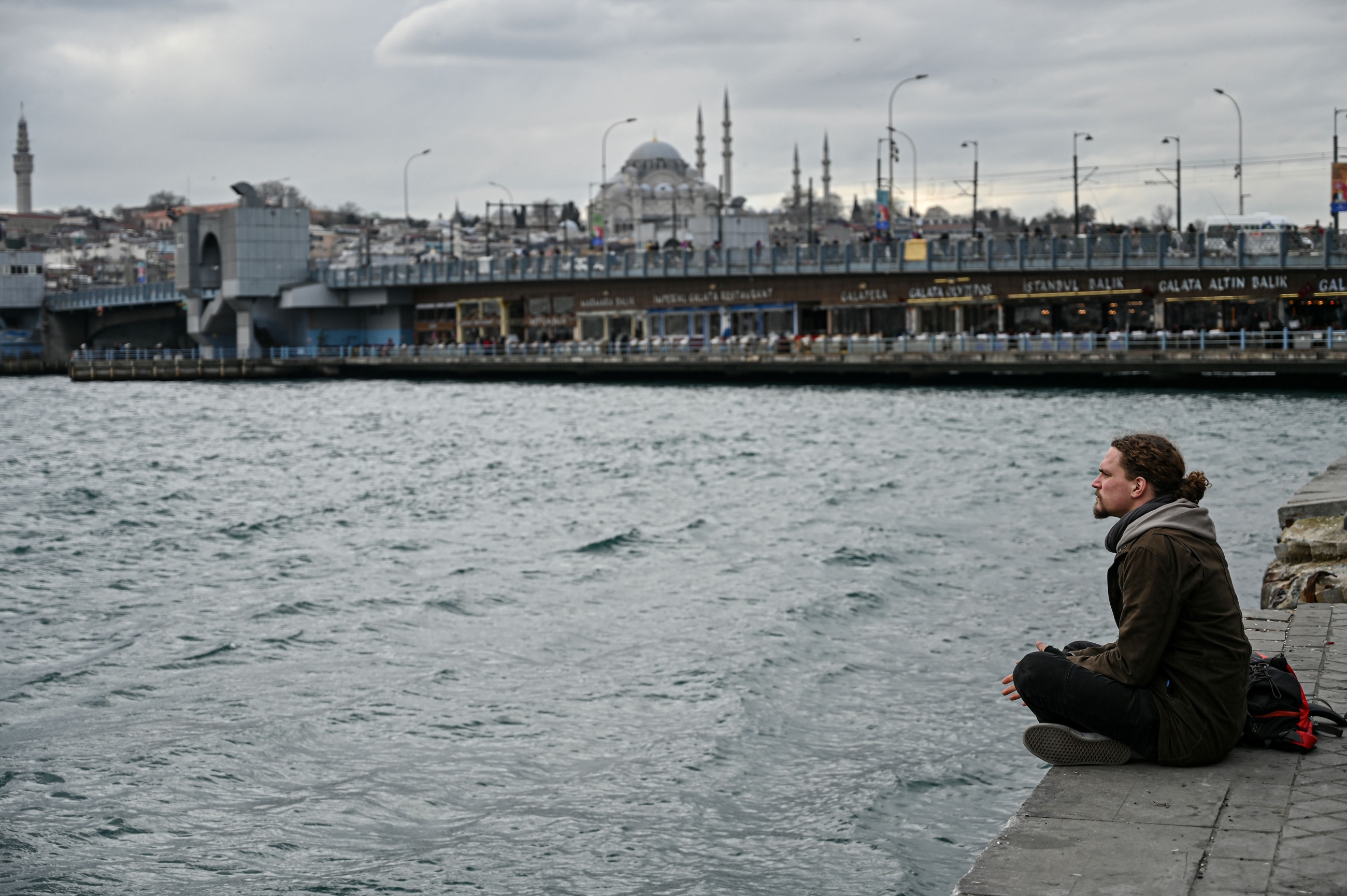Turkish public believes Turkey has no friends - but Turks

For decades, the Turkish state had a strictly nationalist curriculum in its schools, drilling the idea into pupils' minds that Turks have - almost always - been alone when facing an existential crisis in the international arena.
Teachers taught their students a saying that was believed to summarise the idea: “Turks don’t have friends besides other Turks.”
Though the teaching of such a message has been far less robust in recent years, analysts have still observed a similar trend in education.
Now, it appears, the message that Turkey can only rely on its Turkic neighbours and partners has lost its power - with the majority of Turkish citizens now thinking they stand almost completely alone.
According to an annual poll conducted among 1,000 people in December by Istanbul-based Kadir Has University, just one country fits the majority of the public’s definition of a friend or ally: Azerbaijan, a Turkic country that 56.5 of respondents saw favourably.
Second place was taken by the Turkish Republic of Northern Cyprus, an independent state only recognised by Ankara, with 43.1 percent support. Northern Cyprus saw a 16-percent drop in its approval ratings from last year, largely due to recent policy clashes with Ankara.
The poll also suggests the majority of Turkish citizens believe the remaining countries - including Georgia, Qatar, Russia, Ukraine, Germany, the United States, India and China - are not Turkey’s friends.
Lessons from history
Analysts believe the results aren’t surprising at all, considering the government's nationalist policies over recent decades and Turkey’s increasing military engagement in the region that put Ankara at odds with many neighbours.
Ferhat Kentel, a sociology professor at Istanbul Sehir University, told Middle East Eye that two events largely lie behind this trend: the fall of the Ottoman empire and the Sevres Treaty that followed it, which if enforced would have seen Turkey cede large chunks of Anatolia.
Former colonial powers are always high in the threat list: 64.5 percent of Turkish citizens perceive the US as a threat, 49 percent for the UK and France, while 55.6 percent feel the same about Israel.
Last month, Turkish President Recep Tayyip Erdogan said Ankara’s maritime delimitation deal with the Libyan government had reversed the Sevres Treaty by upending the regional order, a confirmation that memories from the late Ottoman era are still relevant in daily politics.
“The state taught citizens that we have been all alone since the independence war,” Kentel said, referring to the conflict that founded modern Turkey after the First World War.
'Yes, the majority doesn’t like anyone. But no one should ignore the millions of people with different ethnic, cultural and social backgrounds that do perceive other countries as allies'
- Murat Guvenc, study author
“However, now you have the ruling AKP in the last few years also working with nationalist leaders, like Devlet Bahceli and Dogu Perincek, who also assert that Turkey is alone.
"The public is also looking for international organisations or other countries to lean on. And they cannot find anyone else either.”
Others say the Turkish government’s involvement in Libya and Syria's civil wars, and Turkish military presence in Somalia, Qatar, Afghanistan and Bosnia, might have an impact on society as a whole.
Murat Guvenc, a professor at Kadir Has University, one of the study's authors, said that Turkey’s recent Operation Peace Spring in northeastern Syria against Kurdish forces was a good example of how foreign adventures can affect public consciousness.
“You saw both Russian President Vladimir Putin and US President Donald Trump trying to stop the operation. Trump was threatening Ankara with economic sanctions,” he told MEE. "It makes people feel that everyone is against them. I see a similar trend among the most educated, western and secular groups.”
However, Guvenc also pointed out that the results must be examined carefully.
“Yes, the majority doesn’t like anyone. But no one should ignore the millions of people with different ethnic, cultural and social backgrounds that do perceive other countries as allies," he said.
"And there is no monolithic group as Turks.”
On the other hand, Turkish feelings about other countries might be mutual.
For example, 44.4 percent of Turkish citizens believe Germany is a threat to them. And a poll done last year by YouGov indicates that the majority of Germans, 58 percent, believe Turkey should be expelled from Nato over Operation Peace Spring. Only 18 percent were against the idea.
“No one sees Turks as allies. And Turks know that,” Kentel said.
“This is also an international trend: everyone is inclined to go it alone. You have right-wing strongmen as heads of states around the world, which pumps up nationalism."
This article is available in French on Middle East Eye French edition.
Middle East Eye delivers independent and unrivalled coverage and analysis of the Middle East, North Africa and beyond. To learn more about republishing this content and the associated fees, please fill out this form. More about MEE can be found here.





